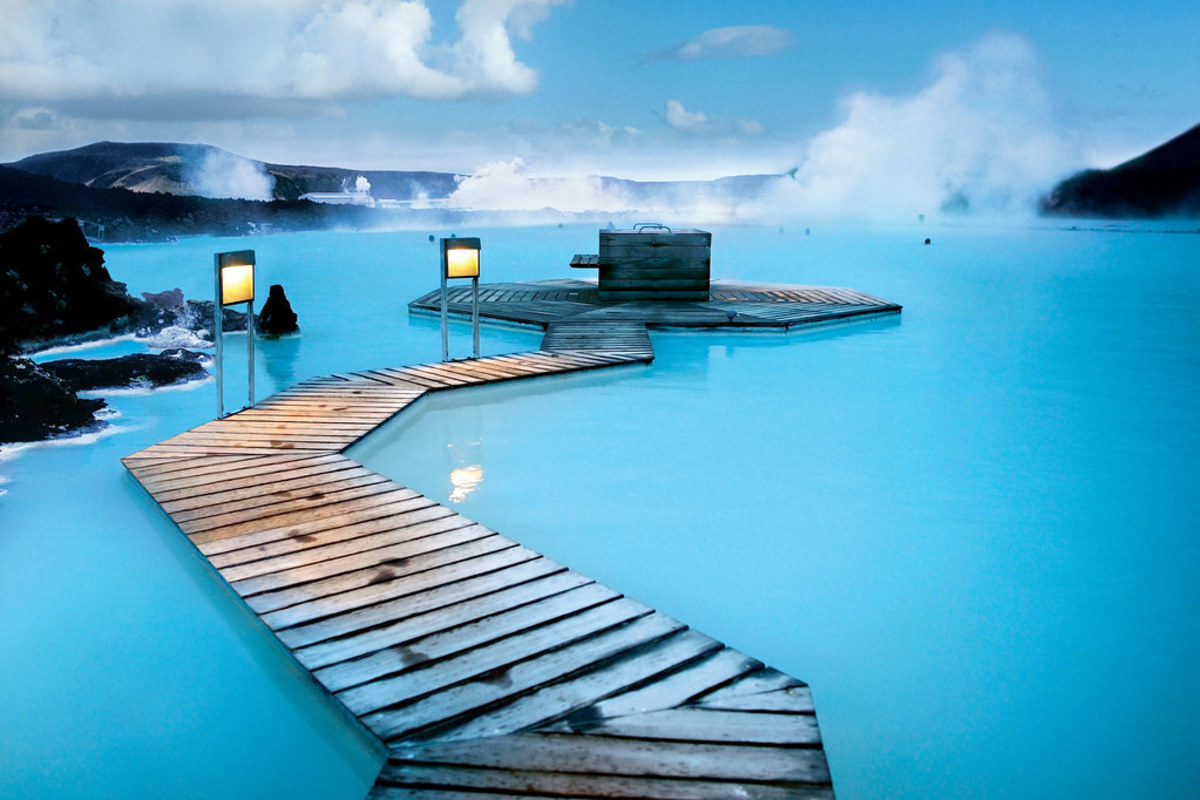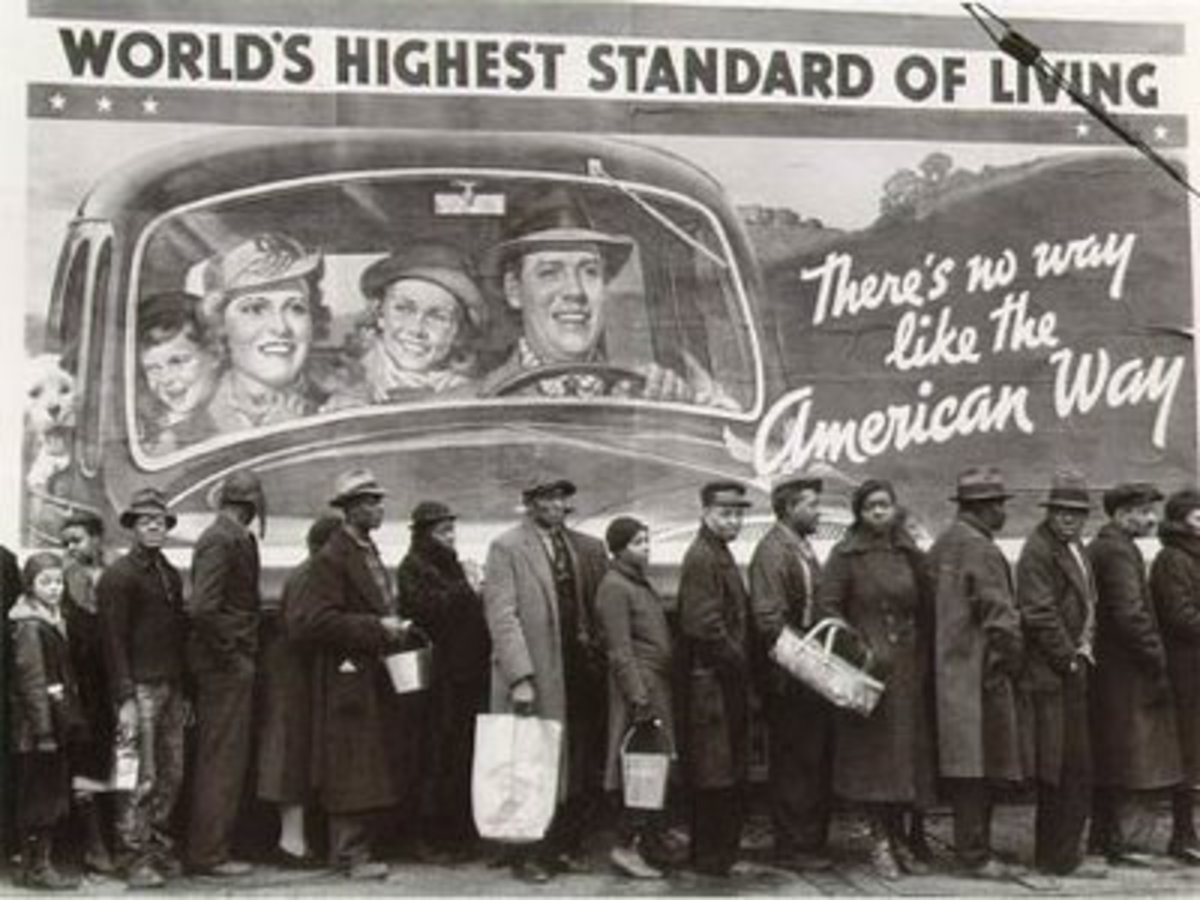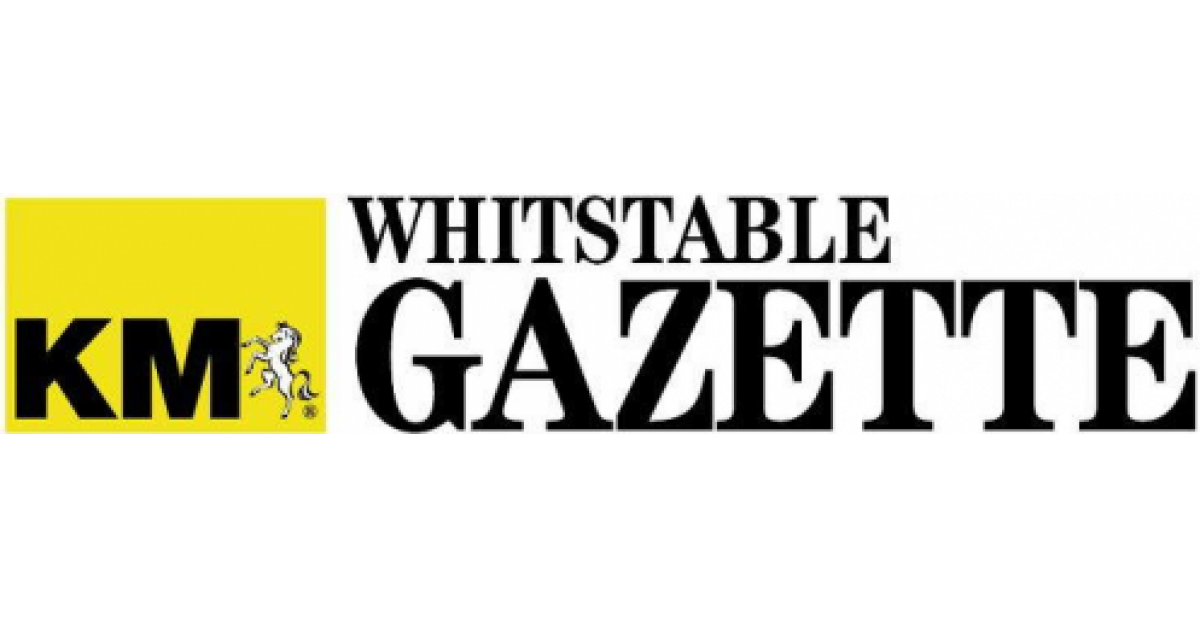Iceland's answer to the Recession. The Nordic Country's experience and response to the economic downturn.
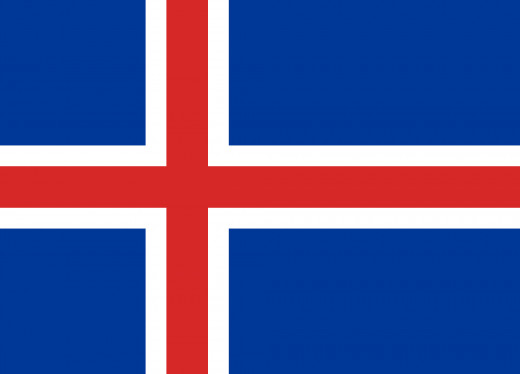
Little Iceland
The country that lies on the edge of Europe adjacent to Greenland and the Arctic is one of five countries with a Nordic heritage. The weather is harsh and the land is hardly lush with vegetation. Volcanic activity dominates the landscape and its 300,000 inhabitants reside in relatively small urban areas near the coast. The economy is very much dependant on fishing, energy resources and mineral extraction. Iceland's most potent resource is the geothermal energy that's stored beneath its rocky terrain and the energy released is plentiful due to the abundant sources of heat provided by the volcanic activity below the surface. Almost all Icelandic citizens have access to this cheap, clean and sustainable source of fuel and despite the inhospitable nature of the island, Iceland is constantly regarded by numerous measures as one of the happiest and most developed countries in the world, that is despite the major calamities that befell the country in very recent years.
3 Former Giants
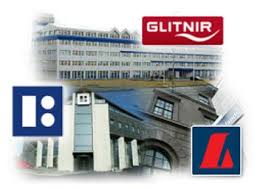
Economic Boom
Since the 1970s, Iceland's economy has diversified to include sectors such as tourism, manufacturing and engineering, and banking and finance. This has helped make the country and its city size population into one of the most prosperous in the world but it was the banking sector that was the primary instigator of the inflated bubble. The banks were deregulated in 2001 under the authority of the long term prime minister Davio Oddsson and the coalition government which he headed. The abundance of cheap credit coincided with huge corporate tax cuts, making Iceland function in a similar manner to Switzerland. Large investments firms such as the Baugur Group and the Icelandic banks had begun infiltrating into other countries financial services industries and consequently, the immediate results were phenomenal as foreign direct investment flooded into the country and GDP increased by almost 250% in the space of only six years. The value of the Icelandic Stock Exchange saw a nine fold increase in as many years.
Iceland's Stock Exchange
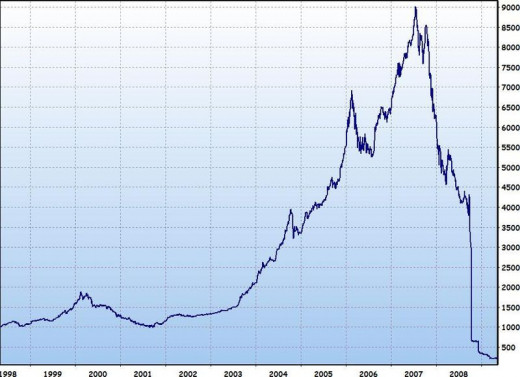
...and bust
A country such as Iceland, with a relatively small population and a minute place in the global economic system was bound to suffer extensively due to the artificial nature of the economic expansion that was occurring. A huge debt can be sustained if the holder is asset rich and can secure the amount owed with said assets, for example; Japan. Problems in the money supply started to unravel when the Icelandic currency, the Kronur started to rapidly depreciate against the Euro, reaching a low point in October 2008. At the same time, the banks were in jeopardy, having overstretched their investments in countries where turmoil in the financial services was also taking hold. The bulk of the Icelandic bank's overseas investments were being conducted with the United Kingdom and The Netherlands, who were both facing financial difficulties at the time. A lack of regulations in the industry worldwide lead to falsified levels of liquidity and solvency and Iceland's banks had inflated their capacity to approximately 10x the level of GDP, according the the IMF whom they eventually sought a bailout from.
2008 Reykjavik Protests
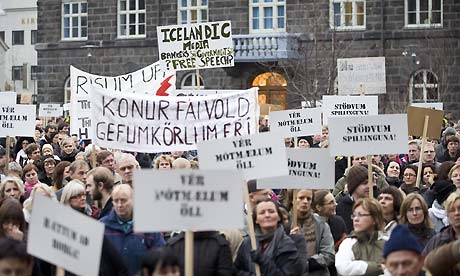
A remarkably different approach
The term 'IMF bailout' carries numerous negative connotations associated with severe austerity, political upheaval and restrictive economic practices. Iceland's the country that suffered the most in proportion to its size is also the one that let its banking infrastructure collapse. The IMF loan of $2.1 billion came in conjunction with loans from Iceland's neighbouring Nordic countries in Scandinavia but the rebirth would be directed by heavy government intervention and and with participation from the Icelandic electorate themselves, who helped in implementing constructional reforms in the following years. The three hundred thousand strong, highly urbanised population also came out in protest in 2008 and 2009, demanding that the financiers and the politicians face eviction from office or prosecution for their white collar crimes.
Even before an election was held in Spring 2009, the ruling coalition party reacted quickly and in accordance with people's will. The three failed banks had been liquidated and their remains had been nationalised and recapitalised by the government, the currency was significantly devalued both as a consequence of the crisis and while the currency was reconstituted following suspension from the foreign exchange markets. Approximately 20 individuals bearing great responsibility for the financial crash were eventually arrested and put on trail and the government willingly called for an election which saw them defeated and replaced by the social democrats.
Jóhanna Sigurðardóttir
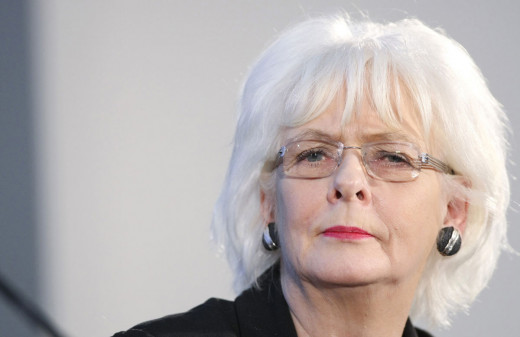
Recent Developments
Although billed as one of the more successful responses to the great recession, Iceland has not exactly left the dramatic events of the past several years behind. On the positive side, the IMF program ended in 2011, the economic data reveals steady and consistent growth of approximately 2.5% per annum and the country's credit rating has improved according to major rating agencies such as Fitch, Moody's and Standard & Poor's. Its manufacturing and tourism industries are also consistently expanding. Most significantly, the population of Iceland has been very directly involved in the redevelopment of their country, despite the critical situation they found themselves in. Being a country with a relatively small population and a relatively small set of political and financial infrastructures, the elements of direct democracy were very poignant and effective in Iceland.
The negative impacts have been felt particularly in the job market. Iceland's population has increasingly sought employment opportunities abroad and this brain drain has been noted in population statistics. Repossessions of homes and other expensive assets has been prevalent and there have been difficulties with regards to individual credit scores and property ownership in general has become a greater challenge, mostly due to tougher banking regulations. Taxes and have also increased as have the prices of goods and services. Iceland's economic program of the last 15 years has demonstrated the volatility of 'Casino Economics', or an unregulated market populated with speculation, derivatives and a gambling ethos which pits corporations against one another in a frenzied, dogmatic free for all. Iceland's current model is a highly regulated mixed economy, similar to that of Franklin Roosevelt's New Deal of the 1930s and is a more sustainable long-term economic model
A Casino Economy

Your opinion
Has Iceland's response to the crash been the most robust in Europe?
The Largest Crash in History
- Iceland: Cracks in the crust | The Economist
An Economist article detailing much of the facts and figures surrounding Iceland's economic woes.


